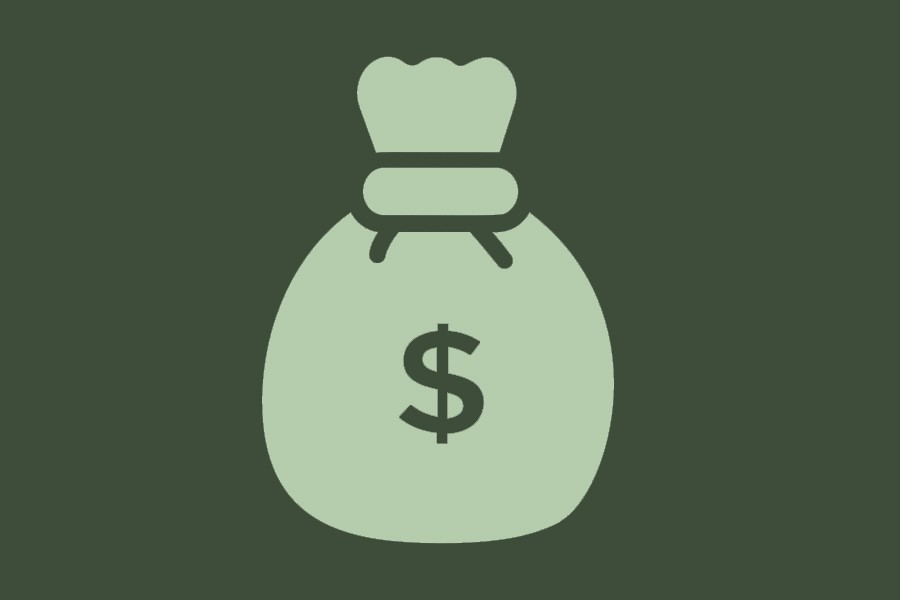The apex body of dealer banks has submitted six-point proposals to the central bank for stabilising the ongoing volatility in the country's foreign exchange (forex) market.
The Bangladesh Foreign Exchange Dealers' Association (BAFEDA) suggested the Bangladesh Bank (BB) providing the state-owned commercial banks (SoCBs) with foreign currency support only for settling of the government's import payments for the next three months.
The exchange rate to be quoted by the authorised dealer (AD) banks for overseas exchange houses will be Tk 0.10 less per US dollar than that of the inter-bank rate, and necessary arrangement should be made to increase the cash incentive against wage earners' remittances to 5.0 per cent from existing 2.5 per cent.
It also proposed to review the inter-bank exchange rates periodically, and that necessary adjustment to be allowed based on the market dynamics.
And, required foreign currency should be continued to be injected to the market as and when necessary, the apex body of the dealer banks said in its proposal submitted to the BB governor on May 19.
Earlier at an emergency meeting of its executive committee (EC) on May 18, the BAFEDA took a decision to
submit a set of proposals to the governor as well as its member banks.
The EC of the BAFEDA expressed the hope that implementation of the proposals would help bring stability in the market.
A similar letter will also be forwarded to all the BAFEDA member banks as early as possible, a senior member of the trade body told the FE on Saturday.
About the liquidity support to the SoCBs, he said the exchange rate of the US currency went up when the SoCBs purchased the greenback from the market to settle the government's import payments.
"It will help stabilise the forex market if the central bank provides foreign currency support to the SoCBs as per their requirements to settle the government's import payments only for three months," the BAFEDA member explained.
The central bank has so far sold $5.50 billion from the reserves directly to the commercial banks, mostly the SoCBs, as liquidity support for settling their import-payment obligations in the current fiscal year (FY) 2021-22.
He further said the BAFEDA proposed that all export proceeds be negotiated or discounted with the designated or exposure-taking AD banks handling the export documents and receiving the export proceeds.
It means the AD banks would avoid encashment of export proceeds of other banks' clients to help bring stability in the forex market, according to the member.
"Our EC has approved the proposals after reviewing the country's latest macroeconomic condition along with the forex market situation," he said while replying to a query.
The BAFEDA's move came against the backdrop of falling trend in the value of the local currency against the US dollar mainly due to higher outflow of foreign exchange following 'hefty growth' in import payments compared to the inflow in the last few months.
The local currency has depreciated by nearly 2.0 per cent or Tk 1.70 since January this calendar year, following higher demand for the greenback for settling import-payment obligations.
The dollar was quoted at Tk 87.50 each on the inter-bank market on Thursday--unchanged from the previous level. It was Tk 85.80 on January 08 this calendar year.
Market operators, however, say the demand for the US currency is still prevailing high mainly due to higher import payments, particularly for petroleum products and consumer items, including food-grains.
The greenback was quoted at maximum Tk 87.60 each for the sale of bills for collection, generally known as BC, on the day--unchanged from the previous level.
In some cases, the banks quoted the US dollar between Tk 91 and Tk 95 for settling import-payment obligations of their customers instead of Tk 87.70, they added.
They also say the forex market is still facing a big mismatch between inflow and outflow of foreign exchange despite higher export earnings in recent months.
Actually, the country's import expenses increased significantly as a fresh hike of essential commodities including fuel oil prices in the global market mainly due to the ongoing Russia-Ukraine war.


